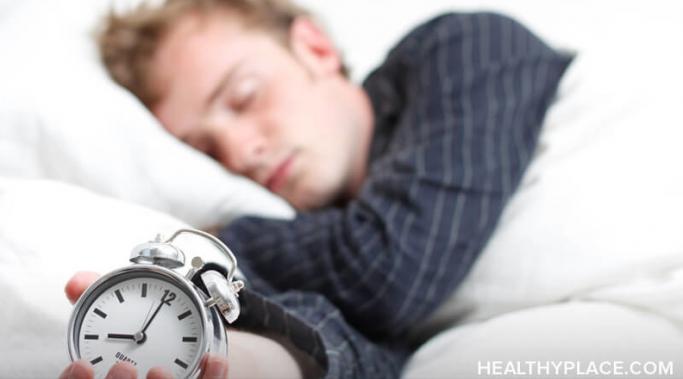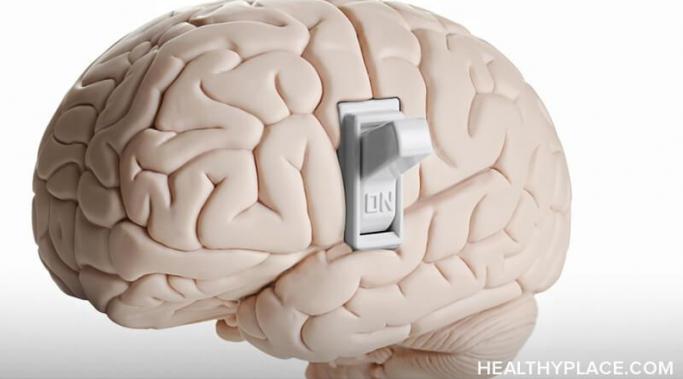Over the years I’ve been treated for bipolar, I’ve come to the conclusion that when you sleep and when you wake (your circadian rhythm) is key in stability and wellness. If you do not wake up at the same time every morning and go to bed at the same time every night you are in for a world of hurt.
This is mostly my opinion though. There is some research on the matter, but nothing as conclusive as I feel about it. Or at least nothing that I knew about until I heard of the Chicago Psychiatry Associates’ Program in Psychiatric Chronotherapy. (Sounds complicated, but it isn’t. Stay with me.)
Bipolar Treatment – Breaking Bipolar
Earlier this month, I wrote about how to stay on psych medication. I gave tips and tricks to help you stay on track. In today's video, I show you my own twist on psych medication reminders.
Many of us with a mental illness have tried to “power through” it. We have tried to muscle through the pain without getting help of any kind. Most of us don’t want to admit we need help. Most of us don’t even want to admit we’re sick. We think that we’ll be fine without doctors and therapists and pills. We think that they are the enemy. We think we’re better off without them.
We are so ridiculously wrong.
Let me just come right out and say it: psychiatric medications suck. They just do. Waking up every morning with your first thought to choking down brightly-colored circles, ovals and squares is a bad way to start the day. Similarly, having your last act at night be downing medication to induce what used to be the natural process of sleep is equally unfortunate.
But psychiatric medications are a reality for people with a mental illness. They are important. In fact, for many of us, without them we would have no chance at a life at all.
So if we admit we hate them, but admit we have to take them, how does one manage to stay on psychiatric medications?
I had a VNS implanted about three years ago. The surgery involved two incisions, one under the left arm and one on the left lower front of my neck. My neurosurgeon promised a scar between 1-3 inches but it’s probably closer to four. Of course, I would much rather he get the surgery right and have a bigger scar than the other way around. Someone messes up your vagus nerve and you know about it, pretty much forever.
Vagus nerve stimulation (VNS) is exactly what it sounds like--stimulation of the vagus nerve in your neck. Stimulation takes place by using electrical impulses (a nice way of saying shocks). When the vagus nerve is stimulated, that stimulation is then carried to various other parts of the nervous system and this is what is thought to be its method of action. This stimulation may alter neurotransmitters like norepinephrine and GABA.
OK, I know, that’s complicated. In short, they zap a nerve in your neck and that’s carried to the brain where it does stuff.
Those of you who follow me may have gleaned that I've been having trouble getting a psychiatrist. Basically, I was finally allowed to see one and she threw up her hands, told me to give up and that I was never going to get any better. This is one of the worst things I have ever been told, and personally, I think is unacceptable on pretty much every level.
However, yesterday I managed to see someone new, and this poses its own challenges.
The internet is a fabulous place where everyone gets to share their story for all to see. The internet is a horrible place where everyone gets to share their story for all to see.
It is the best of times; it is the worst of times, and nowhere is this more evident than in the deluge of mental health information.
It is often the case that those around a person with bipolar disorder spot the disorder before the person themselves does. That’s pretty understandable as our actions are always louder from the outside. Not to mention our brain, which is supposed to be paying attention to our behaviors, is the thing that’s sick. So, you know, we miss stuff. Crazy tends to obscure reality.
But what if you think a person has bipolar disorder and the person won’t listen? In this case, there are really only three things you can do.
One night in 2007, I started a new antipsychotic. It was to be taken at dinner time. I did as told and took it at the universal dinner time of 6 pm.
By 7 pm, I had mostly lost touch with reality. I was suddenly so tired that my eyes wouldn’t open but I was far too anxious, scared and twitchy to go to sleep. I felt incredibly ill. I was frantic, terrified and panicked. I was thrashing in a sharp, steel cage between sleep and wake with no way out. I cannot express to you the horror of that night.
Bipolar medication side effects suck.



